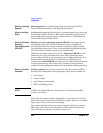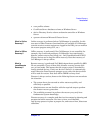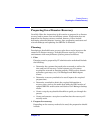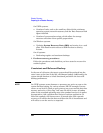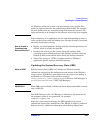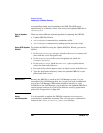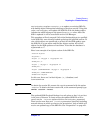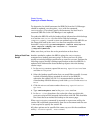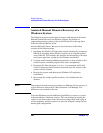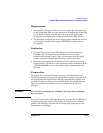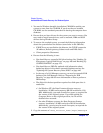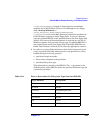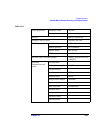
Disaster Recovery
Preparing for a Disaster Recovery
Chapter 10448
To determine for which hostname the SRD file from the Cell Manager
should be updated, use the option -host with the command
omnisrdupdate. If you don’t specify the hostname, the local host is
assumed. SRD file on the Cell Manager is not updated.
Example To update the SRD file with the backup object information which belongs
to a session 2002/05/02-5 for the client with the hostname
computer.company.com and to store an updated copy of the SRD file on
the floppy disk and in the SRDfiles share on computer with the
hostname computer2, type omnisrdupdate -session 2002/05/02-5
-host computer.company.com -location a: -location
\\computer2\SRDfiles
Make sure that you have the write permission on that share.
Using a Post-Exec
Script
Another method to update the SRD is using the omnisrdupdate
command as a backup post-exec script. To do so you have to either
modify an existing backup specification or create a new one. Perform the
following steps to modify a backup specification so that the SRD file is
updated with information about backed up objects when the backup
session stops:
1. In the Backup context, expand the Backup Specifications item
and then Filesystem.
2. Select the backup specification that you would like to modify (it must
include all backup objects marked as critical in the SRD file,
otherwise the update will fail. It is recommended to perform the
client backup with disk discovery) and click Options in the Results
Area.
3. Click the Advanced button under the Backup Specification
Options.
4. Type omnisrdupdate.exe in the post-exec text box.
5. In the On client drop down list, select the client on which this
post-exec script will be executed and confirm with OK. This should be
the client that was marked for backup on the source page.
When omnisrdupdate command is executed as a post-exec utility, the
session ID is obtained automatically from the environment and the user
is not required to specify the session ID.
All other options can be specified the same way as with the standalone
utility (-location <path>, -host <name>).



